You’ve seen the Eiffel Tower. You’ve walked along the Seine. You’ve eaten croissants so flaky they crumble like autumn leaves. But have you ever danced until sunrise in a basement club beneath Montmartre, where the bass thrums through your bones and strangers become friends before the first song ends?
Paris isn’t just about museums and cafés. Beneath its polished surface, the city pulses with a nightlife that’s raw, wild, and deeply personal. If you’re asking yourself, Wanderlust Paris - Ready to Dance? - the answer isn’t yes or no. It’s when and where.
Paris Nightlife Isn’t What You Think
Most tourists think Paris nightlife means candlelit wine bars and jazz clubs in Saint-Germain. Those exist. But they’re the quiet side of the city. The real heartbeat? It’s in the unmarked doors, the hidden courtyards, the warehouses turned clubs in the 19th arrondissement. This isn’t the Paris of postcards. This is the Paris that wakes up after midnight.
Think of it like this: Paris by day is a slow, elegant ballet. Paris by night? It’s a punk rock concert in a 19th-century train station. You don’t just visit - you get pulled in.
What Makes Paris Nightclubs Different?
Paris clubs don’t chase trends. They build cults.
At Concrete is a former cement factory turned underground techno temple in the 19th arrondissement, known for 12-hour sets and zero dress code. You won’t find bottle service here. You’ll find people dancing like no one’s watching - because no one is. The lights stay off. The music stays loud. The vibe stays real.
Then there’s Le Baron, a velvet-draped, celebrity-favorite spot in the 8th. It’s glam. It’s loud. It’s the kind of place where you might spot a French indie star sipping champagne next to a Tokyo fashion designer. But even here, the music matters more than the faces.
And then there’s Rex Club, a Paris institution since 1987. This place doesn’t need Instagram. It’s got history. Daft Punk played here before they were famous. Carl Cox still drops in. It’s the kind of club where the DJ booth looks like it was built in the 90s - and that’s the point.
Why Dance in Paris? It’s Not Just About the Music
You don’t come to Paris to dance because it’s trendy. You come because it’s transformative.
There’s something about dancing in a city that’s been singing for centuries. The streets outside are lined with centuries-old buildings. Inside? You’re moving to a beat that feels like it’s been waiting for you. It’s freedom. It’s anonymity. It’s the rare chance to be someone else - even if just for one night.
People tell stories about Paris clubs like they’re myths. “I danced until 7 a.m. with a Brazilian poet who didn’t speak French.” “The DJ played only vinyl from 1992, and no one cared.” “We ended up on a rooftop with strangers, drinking cheap champagne and watching the sunrise over Sacré-Cœur.”
These aren’t exaggerations. They’re Tuesday nights.
Types of Clubs You’ll Find in Paris
Paris doesn’t have one nightlife scene. It has five - each with its own rhythm.
- Techno Basements - Think Concrete, La Bellevilloise. Dark, loud, no frills. Perfect for purists.
- Chic Lounges - Le Baron, La Cigale. Glamour with a beat. Dress up. Sip something expensive. Be seen.
- Underground Jazz & Experimental - New Morning in the 10th. Smoky, intimate, and full of surprises. Sometimes the music doesn’t start until 1 a.m.
- Outdoor Summer Parties - La Machine du Moulin Rouge or rooftop sets at Le Perchoir. Open-air, Paris skyline, and a playlist that blends house, disco, and French pop.
- Queer & Alternative Spaces - Gaieté Lyrique and La Clef. Safe, inclusive, and always pushing boundaries. The best parties in the city often start here.
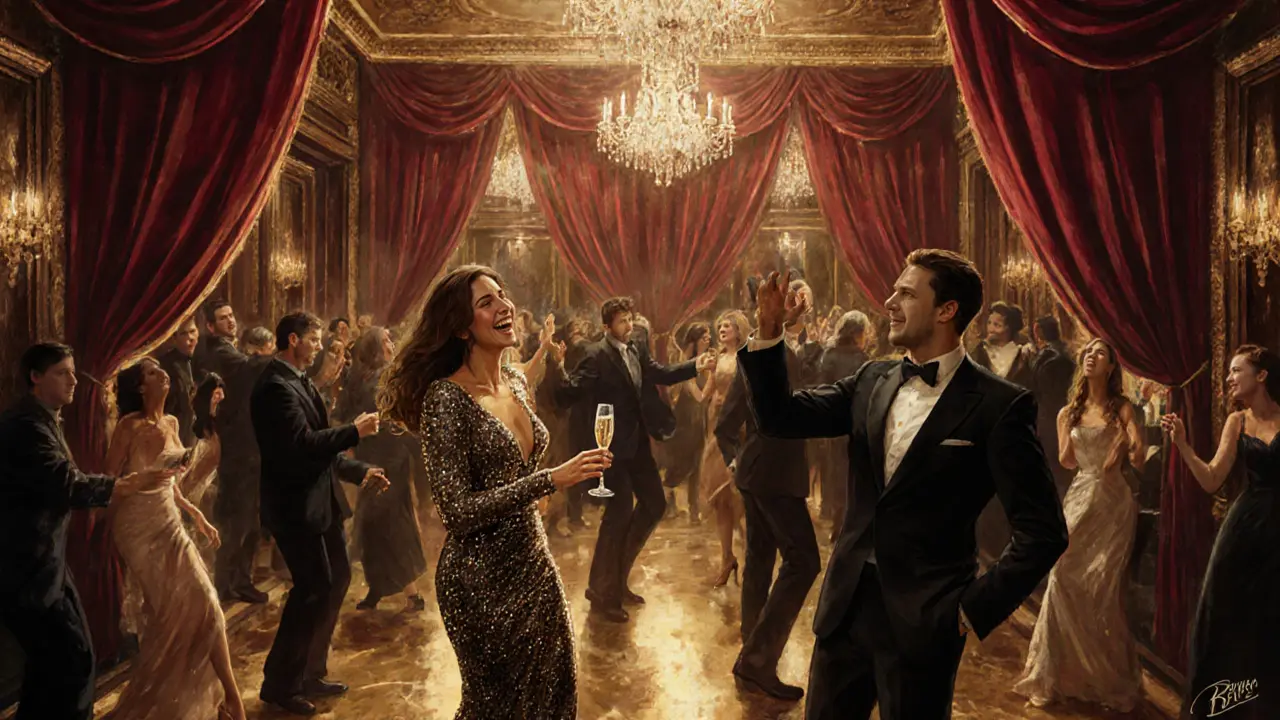
How to Find the Right Club - No Tourist Traps
Don’t Google “best clubs in Paris.” You’ll get the same 5 results that every travel blog repeats.
Instead:
- Check Resident Advisor - the go-to for underground electronic events. Filter by Paris, date, and genre.
- Follow local DJs on Instagram. Not the big names. The ones with 10K followers who play at 3 a.m. in a warehouse. They know what’s real.
- Ask at independent record shops. Disquaire du Marché in the 11th or Disques et Cie in the 10th. Staff here know the scene better than any app.
- Walk around Canal Saint-Martin on a Friday night. If you hear music leaking from a doorway you didn’t notice before - go in.
Pro tip: Many clubs don’t have websites. Or they do, but they only update the lineup 24 hours before. That’s part of the magic.
What to Expect When You Walk In
Forget bouncers checking your ID with a flashlight. In Paris, it’s more like a whispered conversation.
You show up. Someone glances at your name on the list - or just nods. No velvet rope. No cover charge until you’re inside. Sometimes, it’s €10. Sometimes, it’s free if you buy a drink. Sometimes, you just pay at the end.
Inside, the air is thick. Not with smoke - Paris clubs are mostly smoke-free now - but with energy. People aren’t taking selfies. They’re dancing. Some alone. Some in circles. Some with strangers who become friends by 3 a.m.
The music doesn’t stop. It evolves. One hour it’s Detroit techno. The next, it’s French house mixed with African percussion. The DJ doesn’t announce tracks. You just feel them.
And the drinks? Cheap. Like, shockingly cheap. A beer costs €6. A cocktail? €9. No one’s here for the bar. They’re here for the night.
Pricing & Booking - No Surprises
Most clubs don’t require advance tickets. But here’s what you need to know:
- Small underground spots - Usually free or €5-€10 at the door. Cash only.
- Popular venues like Rex Club or La Bellevilloise - €15-€25. Buy online if you’re going on a weekend. Lines form early.
- Le Baron or high-end lounges - €25-€40. Sometimes a guest list gets you in free. Ask a local.
- Summer outdoor parties - €20-€35. Often sell out. Book via Fnac Spectacles or the venue’s Instagram.
Always carry cash. Many places don’t take cards after midnight. And never show up before 11 p.m. - you’ll be the only one there.
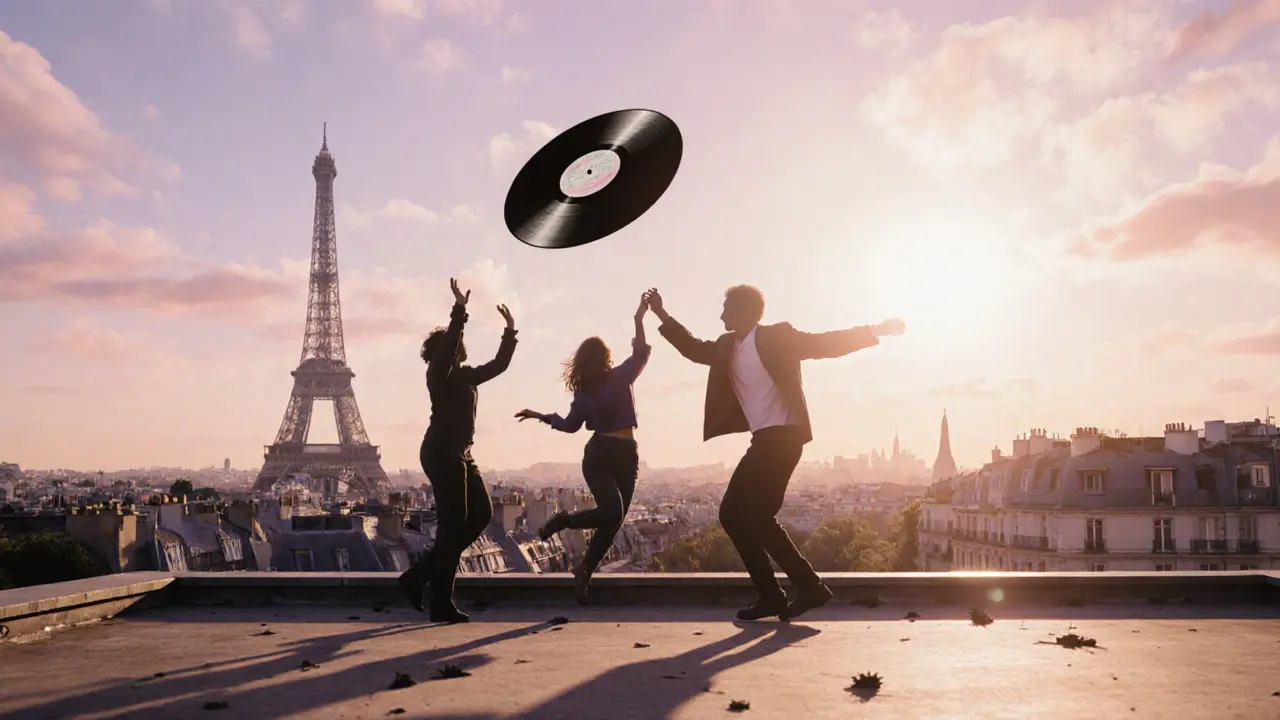
Safety Tips - Dance Smart
Paris is safe. But nightlife anywhere has its risks.
- Don’t carry your passport. Keep it locked in your hotel safe. A photo on your phone is enough.
- Use a crossbody bag. Pickpockets target crowded dance floors.
- Know your route home. The metro runs until 1:15 a.m. on weekdays, 2:15 a.m. on weekends. After that? Uber or Bolt. Avoid unlicensed taxis.
- Don’t follow strangers into alleys. Even if they’re “just showing you the back entrance.”
- Stay hydrated. Paris clubs are warm. Drink water between cocktails.
Concrete vs. Le Baron: Nightlife Styles Compared
| Feature | Concrete | Le Baron |
|---|---|---|
| Location | 19th arrondissement (industrial zone) | 8th arrondissement (Champs-Élysées) |
| Music Style | Techno, industrial, minimal | House, disco, pop remixes |
| Dress Code | None. Wear what you want | Dressy casual. No sneakers |
| Entry Cost | €5-€10 | €25-€40 |
| Best For | Dancers, purists, late-night seekers | Socializers, influencers, glam nights |
| Open Until | 7 a.m. | 3 a.m. |
Frequently Asked Questions
Is Paris nightlife safe for solo travelers?
Yes - if you stay aware. Paris clubs are generally safe, especially in areas like Canal Saint-Martin, Oberkampf, and Belleville. Avoid isolated streets after 3 a.m. Stick to well-lit areas. Many solo travelers say the nightlife here is more welcoming than in Berlin or London. People are friendly, but keep your belongings close.
Do I need to speak French to go clubbing in Paris?
No. English is widely spoken in clubs, especially among staff and younger crowds. But learning a few phrases - “Bonjour,” “Merci,” “Où est la salle de bain?” - goes a long way. The music doesn’t need translation.
What’s the best night to go out in Paris?
Thursday and Friday are the busiest. Saturday is the most crowded - but also the most electric. Sunday nights are surprisingly good for underground sets. Many DJs play Sunday because it’s quieter, and the crowd is more focused. Monday? Rare. Unless it’s a special event.
Can I go clubbing in Paris if I’m under 18?
Most clubs require ID and won’t let anyone under 18 in. Some venues allow 16+ on weekdays for music events, but this is rare. If you’re under 18, stick to live music venues like New Morning or La Cigale - they’re more flexible and have better sound.
Are Paris clubs LGBTQ+ friendly?
Extremely. Paris has one of Europe’s most open nightlife scenes. Gaieté Lyrique, La Clef, and even some mainstream clubs like Rex Club host regular queer nights. You’ll see couples dancing together, drag performers on stage, and zero judgment. It’s one of the city’s strongest traditions.
So - are you ready to dance? Not just anywhere. Not just for the photo. But deep into the soul of the city, where the music doesn’t end when the night does. Paris doesn’t wait for you. It’s already playing. All you have to do is walk through the door.

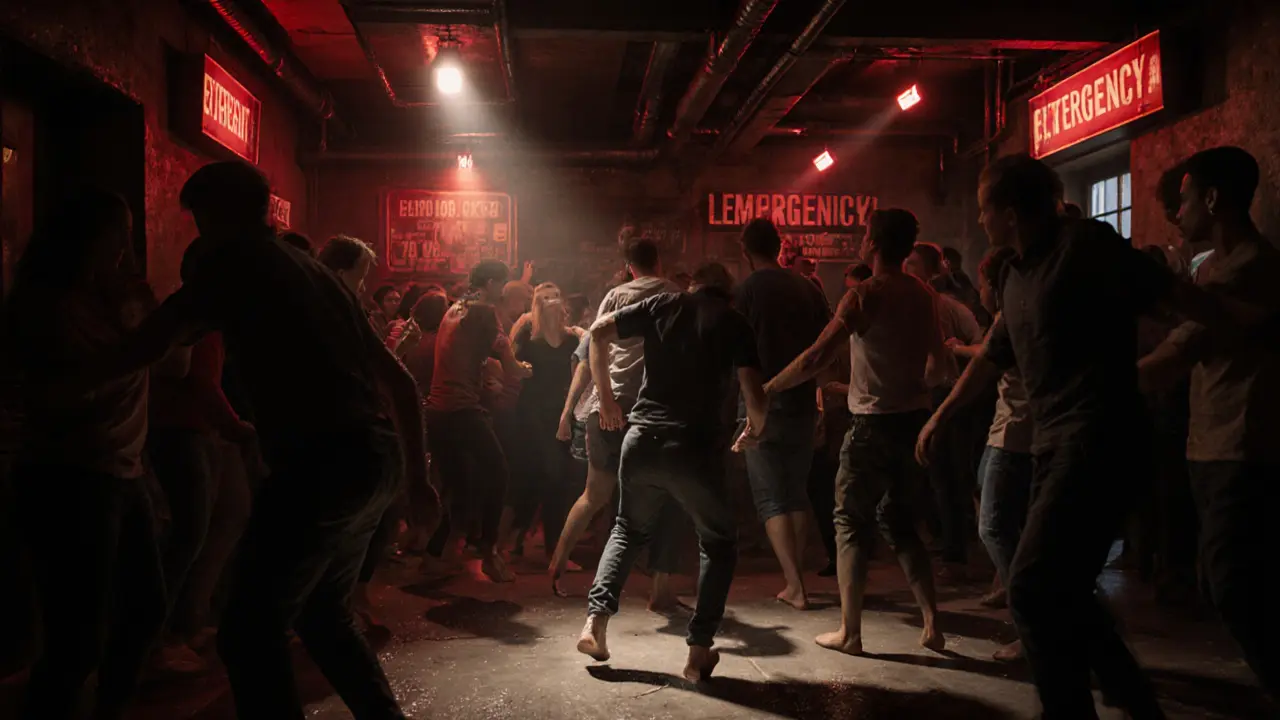
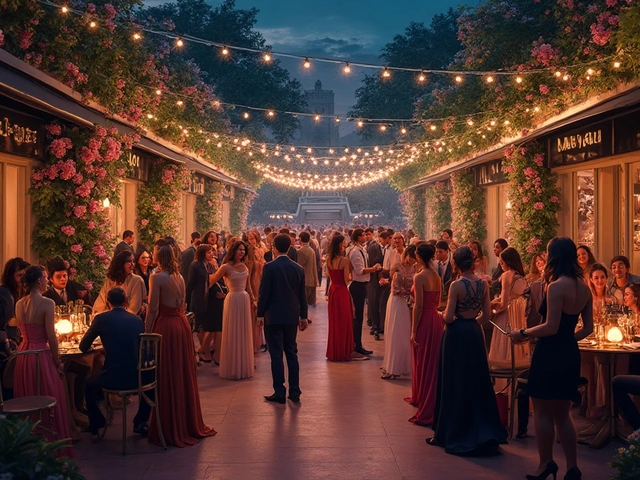

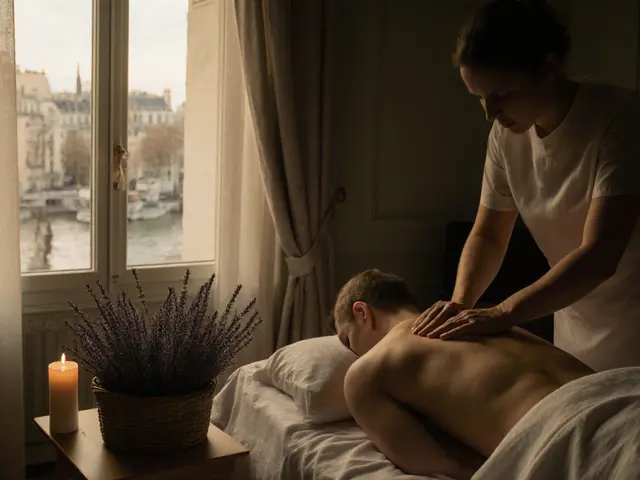
Paul Eric
November 5, 2025 AT 11:25Everyone says Paris nightlife is this magical underground experience but let’s be real - half these clubs are just overpriced bars with black lights and a guy in a hoodie pretending to be a DJ. I went to Concrete last year and it was basically a warehouse with a broken AC and three people dancing. The rest were taking selfies in the corner like they were at a mall food court. And don’t get me started on Le Baron - if I wanted to see rich people sipping champagne while pretending they’re cool, I’d just watch reality TV. Paris isn’t some secret club paradise. It’s just a city with better lighting and cheaper beer than New York. And yeah, I’ve been there. I know.
donna maukonen
November 5, 2025 AT 18:55There’s something sacred about dancing in a city that’s seen so much history. I felt it at Rex Club - the lights were off, the bass was low enough to feel in your ribs, and for a moment, none of my problems mattered. I danced with a woman from Buenos Aires who didn’t speak English, and we just moved together like we’d known each other for years. No words. Just rhythm. That’s the magic. Not the Instagram posts. Not the VIP lists. Just that quiet, loud, beautiful connection. 🌙
Kristine Daub
November 6, 2025 AT 21:51I appreciate how detailed this guide is, especially the practical tips about cash, metro times, and avoiding tourist traps. Many travel articles romanticize nightlife without giving real advice, but this one balances atmosphere with actionable info. I’m planning a trip next month and will definitely use Resident Advisor and ask at Disquaire du Marché - those are gold. Also, the note about hydration and crossbody bags? Essential. Thank you for writing this with both heart and practicality. You’ve made Paris feel accessible, not intimidating. Well done.
Ranjan Shetty
November 7, 2025 AT 19:31As someone who’s lived in Mumbai and traveled to Paris, I can say the underground scene here is more raw than in most Western cities. In India, clubs are loud but controlled - security is strict, dress codes are enforced, and music is often Bollywood remixes. Paris is different. The freedom to just be there, no judgment, no pressure to look a certain way - that’s rare. I went to Gaieté Lyrique on a Tuesday and danced with three people from three continents. No one asked where I was from. The music did the talking. Also, beer at €6? Still hard to believe. You get more for less here. Good guide.
Kristen Sardis Barry
November 8, 2025 AT 12:14Oh wow, so Paris nightlife is now a spiritual awakening? 🙄 I danced at Concrete too. The DJ played one track for 90 minutes. I stood there sweating in my sneakers wondering if I was having a breakdown or a revelation. Turns out it was just a really loud basement. But hey, if you need to feel deep about your life choices while surrounded by strangers who don’t speak your language, sure - go for it. Just don’t call it enlightenment. Call it ‘I forgot to eat dinner and now my brain is glitching.’ 😅
Kristi Bangs
November 9, 2025 AT 09:15